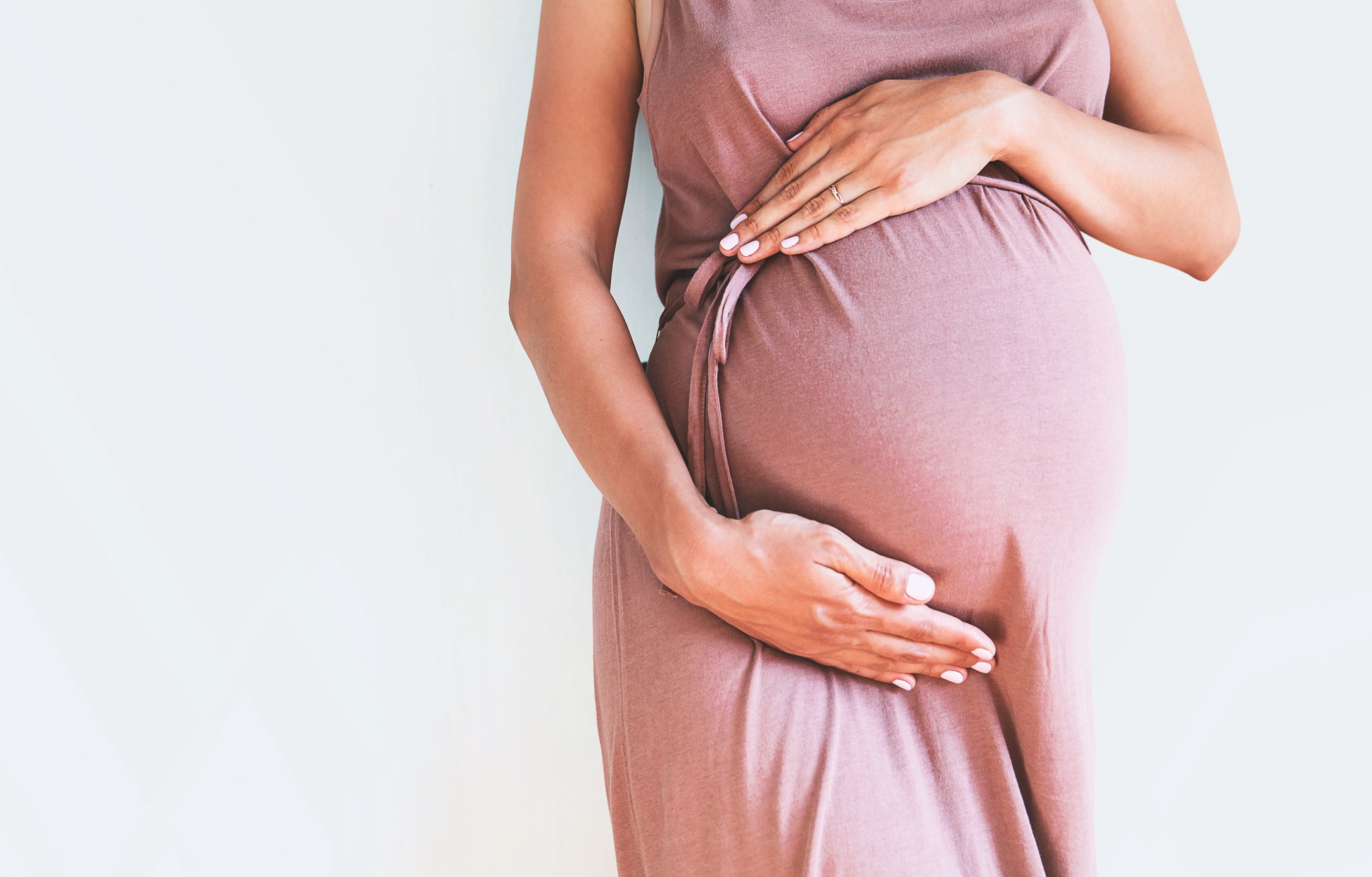Plant-based Diets During Pregnancy...Is It Safe?

Plant-based Diets During Pregnancy...Is It Safe?
Many people wonder if it’s safe to eat a plant-based diet before pregnancy and right through pregnancy. And if you have already experienced pregnancy on a plant-based diet, there's a very good chance that you had plenty of questions from well-intentioned friends and family members (possibly even complete strangers) about your diet!
So let's get down to it- is a plant-based diet safe to follow during pregnancy? Yes! You will be relieved to know that it is absolutely possible and perfectly safe to be vegan while pregnant as long as you pay special attention to your meals to ensure you get an adequate amount of the collection of nutrients needed for a healthy pregnancy. In fact, the British Dietetic Association, the professional registration body for dieticians across the United Kingdom agree that following a vegan diet is completely suitable for people of all ages- including during pregnancy and breastfeeding.
When following a plant-based diet through pregnancy, a large amount of the required vitamins, minerals, amino acids and fatty acids you need for preconception and pregnancy can be easily found in your food. But in preparation for the physiological changes that pregnancy brings, it’s a great idea to check that you are getting enough of the nutrients that I have highlighted below.

Folic Acid (Vitamin B9)
Folic acid is usually the first vitamin that is recommended if you are planning on having a baby. In the early weeks of pregnancy, the embryo’s neural tube, spine and nervous system are beginning to develop and low levels of folic acid can lead to severe birth defects causing problems with the brain or spinal cord which includes spina bifida. Fortunately, ample folic acid before pregnancy as well as the early days of pregnancy can prevent many neural tube defects. In fact, folic acid can reduce the risk of the baby developing neural tube defects by up to 70%!
You may be familiar with the term folate- this is the food-based version of folic acid and is found in a range of foods.
Because folate is water-soluble, meaning it is not stored in the body for a long period, it’s really important to stay on top of your intake of this vitamin. All women should be advised to maintain a folate-rich diet getting in at least 200 micrograms of folate a day. Women can usually reach 100% of estimated folic acid requirements by consuming folate-rich foods such as fortified breakfast cereals, bread, refined grain products, pasta and rice. However, even if you are following a healthy diet with plenty of folate, if you are considering having a baby, you are advised to include a folic acid supplement.
Folic acid from a supplement is absorbed more than 1.7 times greater than folate found in foods.
Ideally, you should take a folic acid supplement containing 400 micrograms per day of folic acid for two to three months before you conceive.

Iron
You probably know that iron is an important one to start thinking about taking while trying to conceive. The reason why you need to manage iron effectively is because it's an important component of haemoglobin which carries oxygen around the body in red blood cells. When women menstruate, there is naturally an increased need for iron due to blood loss. But during pregnancy, the body increases its blood volume by up to 50% to supply the placenta and foetus and so the demand for iron increases dramatically during pregnancy.
Because the body cannot produce its own iron, it needs to be supplied from the food that we eat and supported with supplements. During pregnancy, it’s important to maintain healthy iron levels. This will help with improving postnatal recovery, reduce the impact of blood loss at delivery and avoid a reduced breast milk supply which is associated with anaemia.
According to research, an iron-rich diet might even lower the risk of ovulatory infertility, which is when a woman ovulates irregularly or not at all- ovulatory infertility disorders account for 25% of female infertility.
Zinc
In order for healthy cell growth and development to occur in your baby’s growing body, you need to get plenty of zinc! Since your baby relies on this mineral to support its growth, a healthy intake of zinc derived from your diet is essential. Women of childbearing age are recommended to take at least 7mg of zinc per day. However, for those following a vegan diet, you should ensure that you are consuming plenty of zinc-rich food. This is because plant-based foods such as legumes, unrefined cereals, seeds and nuts contain phytates that reduce the absorption of zinc. But this issue can be overcome by food-processing techniques such as soaking and sprouting, as well as eating plenty of zinc-rich foods. With good planning, you can get enough zinc on a plant-based diet thereby reducing any risks of deficiency during pregnancy.

